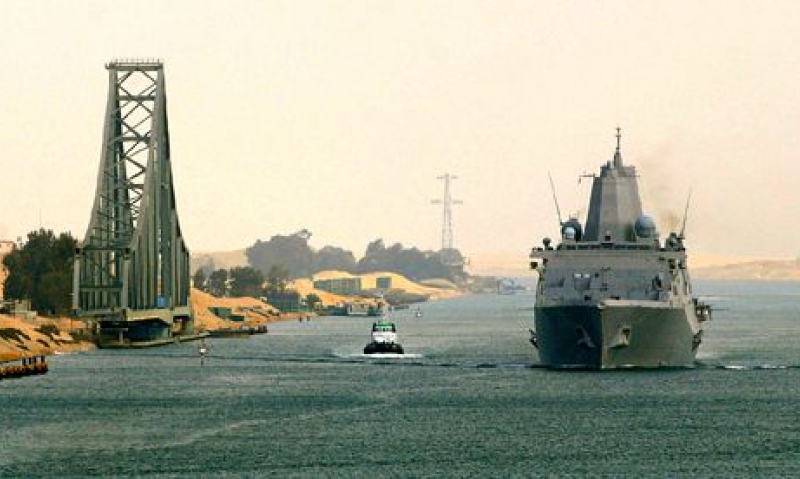
American people, U.S. military need to prepare for a much different regime in Cairo – and a much more complicated security relationship.
As the Egyptian people and military continue to work out what their country will look like after Hosni Mubarak, the American people and the U.S. military should prepare for a much different regime in Cairo – and a much more complicated security relationship with one of the most important countries in the Middle East.
Mubarak’s Egypt, it pays to recall, was a moderating influence in the Arab world. It lived up to the promises made at Camp David. As a result, a major source of international instability – war between Israel and Egypt – was taken off the table. Mubarak’s Egypt stood with the United States in responding to Saddam Hussein’s 1990 invasion of Kuwait, and was an early supporter of post-Saddam Iraq. It held regular exercises with the United States, granted overflight rights to U.S. warplanes, opened its ports to the 6th Fleet, and cleared the way for U.S. warships to transit the Suez Canal. The Congressional Research Service notes that the Navy sends an average of a dozen ships through the Suez per month.
Make no mistake: the end of Mubarak’s autocratic rule is something to celebrate. Egyptians, like all people, deserve to be free. It’s just that what ultimately replaces Mubarak may not be worth celebrating.
We’ve already caught a glimpse of the most likely near-term possibility: a military-backed or military-blessed representative democracy, like Turkey in the 1980s and 1990s. To its credit, the Egyptian military played a key role in persuading Mubarak to cede power, and in preventing Egypt from careening into chaos. Going forward, even after the autumn elections, the Egyptian military could serve as something of a referee/power broker/king-maker, intervening when the political process or civilian leadership threatens to undermine the country’s stability. Having the military hold the political pieces together is not ideal, but it may be necessary for a while in Egypt.
Another possibility after the elections is a democratic country, characterized by civilian control over the military, majority rule and minority rights, free speech and a free press, and peaceful relations with neighbors. Of course, just as Iraq and Afghanistan haven’t transformed into Jeffersonian democracies overnight, neither will Egypt. After decades of one-party rule, there are simply too many volatile elements simmering in Egypt, and too little of a civil society – charities, independent religious groups, political parties, businesses, trade groups – to dilute that volatile mix. In short, it seems unlikely that this revolution will follow Eastern Europe’s peaceful, direct path to democracy.
Under either of these scenarios, Egypt’s neighbors and the United States could expect existing security treaties and defense understandings to remain largely intact. Decision-making might be a little more messy and a little less timely – democracy is not as efficient as a dictatorship, after all – but Cairo would remain a close strategic partner. And what a partner a democratic Egypt could be as a beacon of freedom within the Arab world.
But there are other, darker possibilities. As Secretary of State Hillary Clinton has observed, revolutions can be “hijacked by new autocrats.”
Post-Mubarak Egypt could degenerate into something like Hezbollah-controlled Lebanon or Hamas-controlled Gaza – a dysfunctional regime where the veneer of legitimate government hides a terror state. If this happens in Egypt, it will be the Muslim Brotherhood (MB), not the military, that plays the role of king-maker. If the MB’s past tells us anything about its future, this scenario offers plenty of reasons to worry.
The MB is an Islamist political movement, which means that it advocates reordering society in accordance with a strict interpretation of Islam. That’s how Iran’s leaders and al-Qaida view the world (even though they embrace different forms of Islam). The MB spawned the Palestinian terror group Hamas. And in recent weeks, the MB’s leaders have called for the closure of the Suez Canal, shutting off natural-gas supplies into Israel, and abrogation of the peace treaty with Israel.
It’s not hard to imagine a worst-case scenario in which the MB quietly fashions an “Islamic Republic of Egypt” – a Sunni version of Iran, astride the vital Suez Canal, complete with all the terrorist trappings. If that happens, Washington must be ready to act quickly.
First, before some Tehran-style embassy crisis happens, Washington should send clear, unambiguous signals to the Egyptian military that a) the U.S. aid spigot – an average of $2 billion per year since 1979 – will be shut off if post-Mubarak Egypt begins to resemble post-Pahlavi Iran; and b) U.S. force will be employed if American interests or citizens are threatened. Washington cannot allow another far-off revolution to hold America hostage.
Second, if Egypt’s military fails to maintain internal order, and/or keep the Suez Canal open, the United States will be compelled to intervene, either on humanitarian or strategic grounds. Consider the growing calls inside the United States, and around the world, for intervention in Libya’s bloody revolution. Egypt is much more strategically important than Libya. The world won’t tolerate such a bloodletting in Egypt, and the global economy can’t withstand the closure of the Suez. Some 4.5 percent of global oil supplies, and almost 15 percent of liquefied natural gas, flow through the canal.
Third, if Egypt goes the way of Iran, the United States will have to radically rethink its security posture and force structure in the region. Places like Djibouti, Crete and Cyprus may take on new geostrategic importance, and places like the Negev Desert and Sinai may return to what they haven’t been for 31 years: the front lines of an ancient conflict.
- Landing Zone

